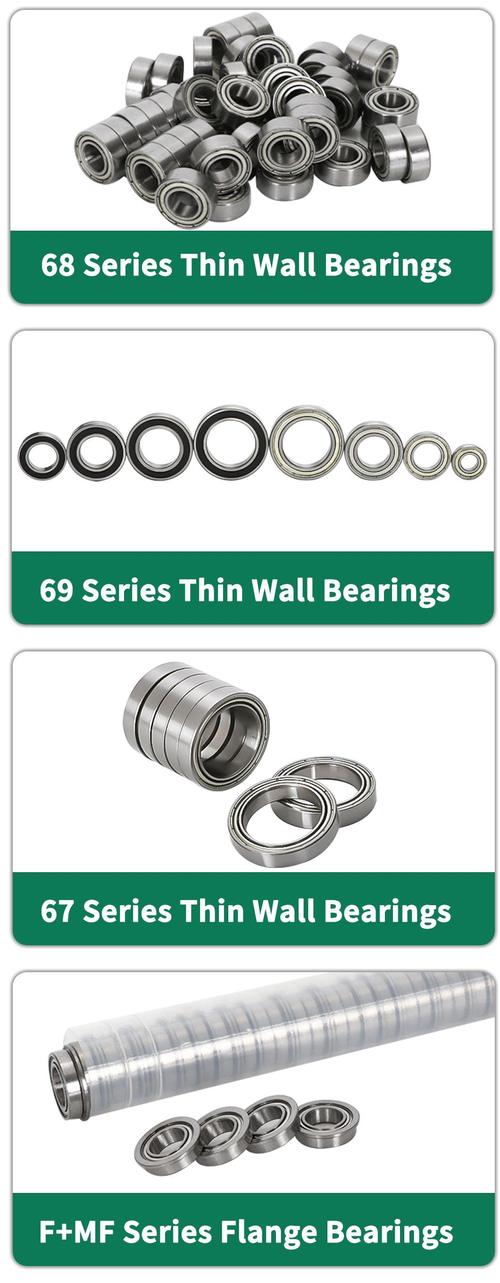Top Miniature Bearing Manufacturers for Medical Grade Applications: A Comprehensive Guide
Introduction
In the precision-driven world of medical technology, miniature bearing manufacturers specializing in medical grade components play a vital role. These ultra-precision components ensure smooth operation in life-saving equipment ranging from surgical robots to diagnostic imaging systems. This guide explores the critical aspects of medical grade miniature bearings and how leading manufacturers meet stringent healthcare requirements.
What Are Medical Grade Miniature Bearings?
Medical grade miniature bearings are ultra-compact rolling elements (typically under 30mm diameter) engineered for sterile environments and repeated sterilization cycles. Unlike standard bearings, they feature non-porous materials like 440C stainless steel or ceramic hybrids that resist corrosion from blood, saline, and disinfectants.
Key Requirements for Medical Applications

1. Biocompatibility: Materials must meet ISO 10993 standards for bodily contact
2. Sterilization Resistance: Withstand autoclave (135°C) and gamma radiation
3. Vibration Control: Near-silent operation for imaging equipment
4. Precision: ABEC 7/ISO P5 tolerance or better
5. Cleanroom Manufacturing: Produced in ISO Class 5 environments
Applications in Modern Healthcare
• Surgical Power Tools: High-speed drill bearings (40,000 RPM)
• MRI Scanners: Non-magnetic ceramic bearings
• Dental Handpieces: Compact angular contact bearings
• Robotic Surgery Arms: Ultra-precise cross-roller bearings
• Drug Delivery Pumps: Corrosion-resistant miniature thrust bearings
Choosing Medical Bearing Manufacturers
1. Verify ISO 13485:2016 certification
2. Check FDA compliance documentation
3. Evaluate cleanroom production capabilities
4. Review material traceability systems
5. Assess custom engineering support
Industry Trends
The medical bearing market is projected to grow at 8.2% CAGR through 2030, driven by minimally invasive surgery adoption. Leading manufacturers now integrate smart sensors for predictive maintenance in connected medical devices.
Why Choose Our Medical Bearings?
Our FDA-registered facility produces ISO 13485-certified miniature bearings with full material traceability. Specializing in custom solutions for orthopedic tools and diagnostic equipment, we offer bearings that exceed 50,000-hour MTBF in clinical testing.
FAQ
What sterilization methods do your bearings support?
Our bearings withstand 500 autoclave cycles (121°C-135°C) and EtO gas exposure.
Do you provide lubricants for MRI applications?
Yes, we offer fluorinated grease compatible with 3T magnetic fields.
What is the lead time for custom sizes?
Prototypes available in 4-6 weeks for diameters from 3mm to 30mm.
How do you ensure biocompatibility?
All materials undergo USP Class VI and ISO 10993-5 cytotoxicity testing.
Can you match existing bearing specifications?
We reverse-engineer legacy components with improved materials while maintaining dimensional equivalence.
Conclusion
Selecting the right medical grade miniature bearing manufacturer directly impacts device reliability and patient outcomes. With 15 years specializing in healthcare components, our solutions combine regulatory compliance with engineered precision. Contact our bearing engineers today to discuss your medical device requirements.




 13869596835
13869596835